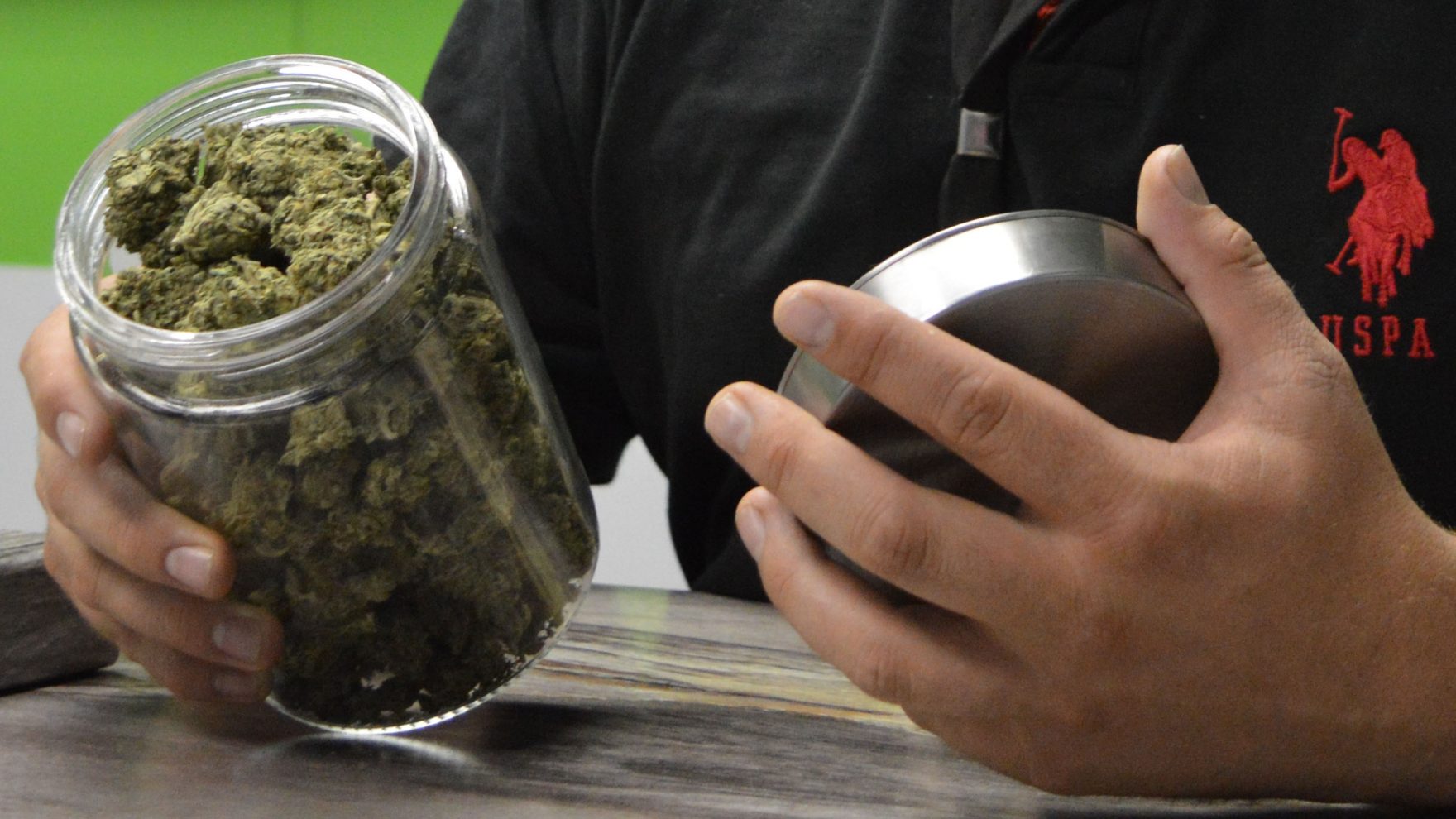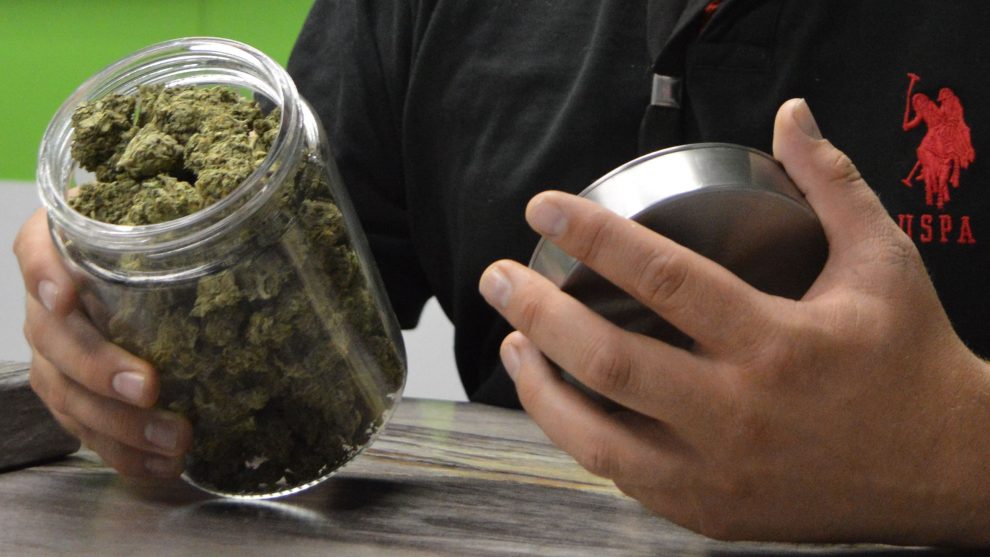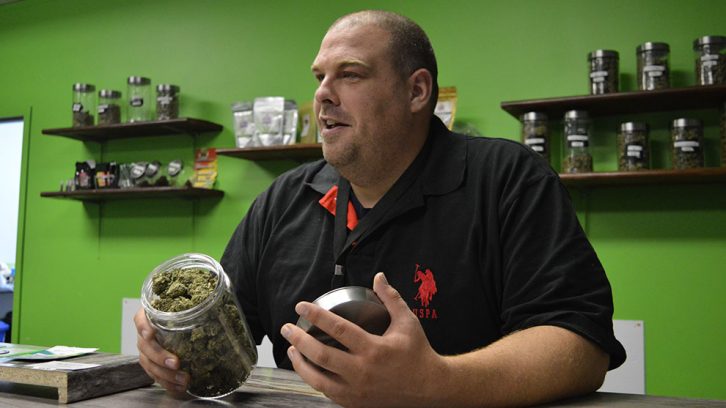The legal “grey area” of medical marijuana in Canada’s greenest province
Nova Scotia has the highest rate of marijuana possession on the East Coast, and the highest bail when you're caught

caption
For businessman and patients in Halifax, marijuana is medical marvel. But officials say the dispensaries they operate out of are illegal.
caption
For businessman and patients in Halifax, marijuana is medical marvel. But officials say the dispensaries they operate out of are illegal.Joined by nearly 20 supporters on August 17, the owner of a Halifax marijuana dispensary asked the provincial court to throw him in prison.
Chris Enns, the owner of Farm Assists Cannabis Resource Centre, has been under a $2,000 recognizance since Halifax Regional Police raided his dispensary last December.

caption
Chris Enns is accused of charges related to the police raid on his marijuana dispensary, Farm Assist.
“I am no longer willing to consent to the Crown-requested conditions of my recognizance,” Enns wrote in a Facebook post, announcing his plan to go on a hunger strike if put in jail. “The court must impose them by force, or take away my liberty pending trial.”
Enns says his drug-trafficking-related charges are unfair.
From 2011 to 2015, Nova Scotia’s marijuana-trafficking rate was Canada’s fifth highest behind British Columbia and territories.
The map below displays rates of possession for each province in 2015.
Source: Statistics Canada table 252-0051 “Incident-based crime statistics, by detailed violations”
At the centre of Nova Scotia’s marijuana scene is the Halifax Regional Municipality, a region that for the last five years has had the country’s highest rate of cannabis possession.
“Regardless of the stats, we continue to focus on enforcing current law, particularly in regard to individuals who are trafficking marijuana,” wrote Lauren Leal, spokesperson for the Halifax Regional Police, in an email.
Source: Statistics Canada table 252-0051 “Incident-based crime statistics, by detailed violations”
While the government sees it as a crime, others have found a profitable and “necessary” business.
“We do all that we can to get people where they need to be,” says Mal McMeekin, the owner of Tasty Budd’s, another medical marijuana dispensary operating in the Halifax region. “If [cannabis] was in every pharmacy, or the government said everyone who needed it would get it today, then I’d shut down my store with no problem.
McMeekin stresses the marijuana sold in his shop is not for recreational use, but only to those with a valid medical prescription.
The 2014 raid on Farm Assists has left McMeekin stressed. He’s invested a lot of money in his business and knows the police can raid the store at any time. He’s also operating without a business permit, and appealed for his right to run the business.

caption
Mal McMeekin displays dried marijuana that he sells to medical patients at his store, Tasty Budd’sA recent decision by the Nova Scotia Utility and Review Board denied McMeekin’s appeal against the municipality, ruling the sale of medical marijuana is “currently illegal under the applicable Federal Legislation.”
Businesses that operate as dispensaries disagree. They say they’re currently operating in a “legal grey area.”
However, Health Canada and police forces have sided with the Halifax region.
“The RCMP enforces current (the) law until such time as (it is) changed, modified or removed,” wrote Harold Pfleiderer, and RCMP spokesperson in an emailed response.
On its website, Health Canada states it does not authorize retail outlets, like dispensaries, to sell marijuana. Only the 35 licensed producers are allowed to allowed to operate.
However, no licenses have been issued in Nova Scotia, a reason that both Enns and McMeekin point to as a reason for their businesses.
Enns says the rules are already unfair and his decision is about showing Canadian’s what is right.
“I want people to understand how people are being treated over simple cannabis crimes,” he said.
Until it can research Enns argument the Crown has delayed its decision. Enns will return to court on Friday, August 17.
About the author

Alexander Quon
Alexander Quon is a freelance journalist from Saskatchewan with an interest in political reporting and data journalism. He's currently working...
